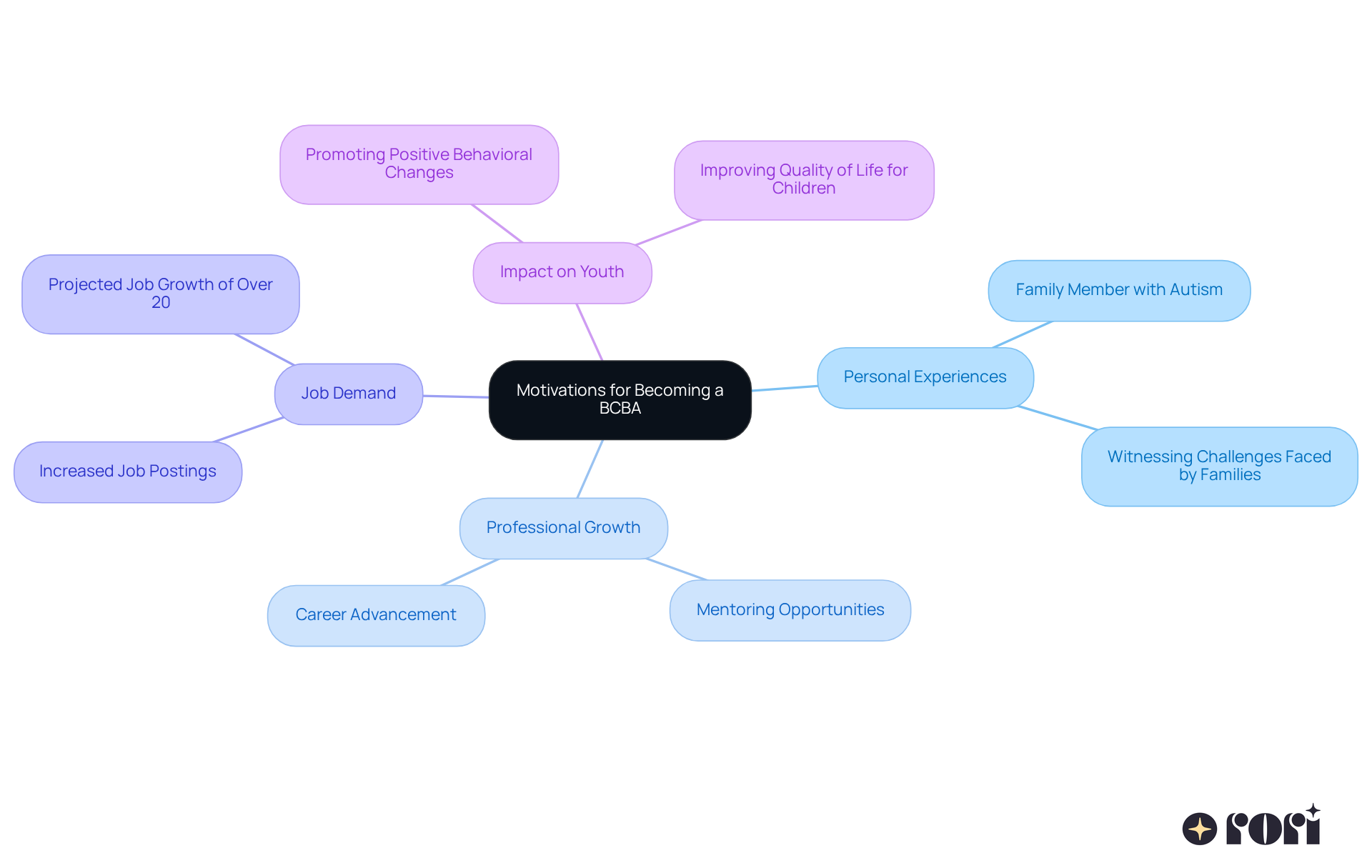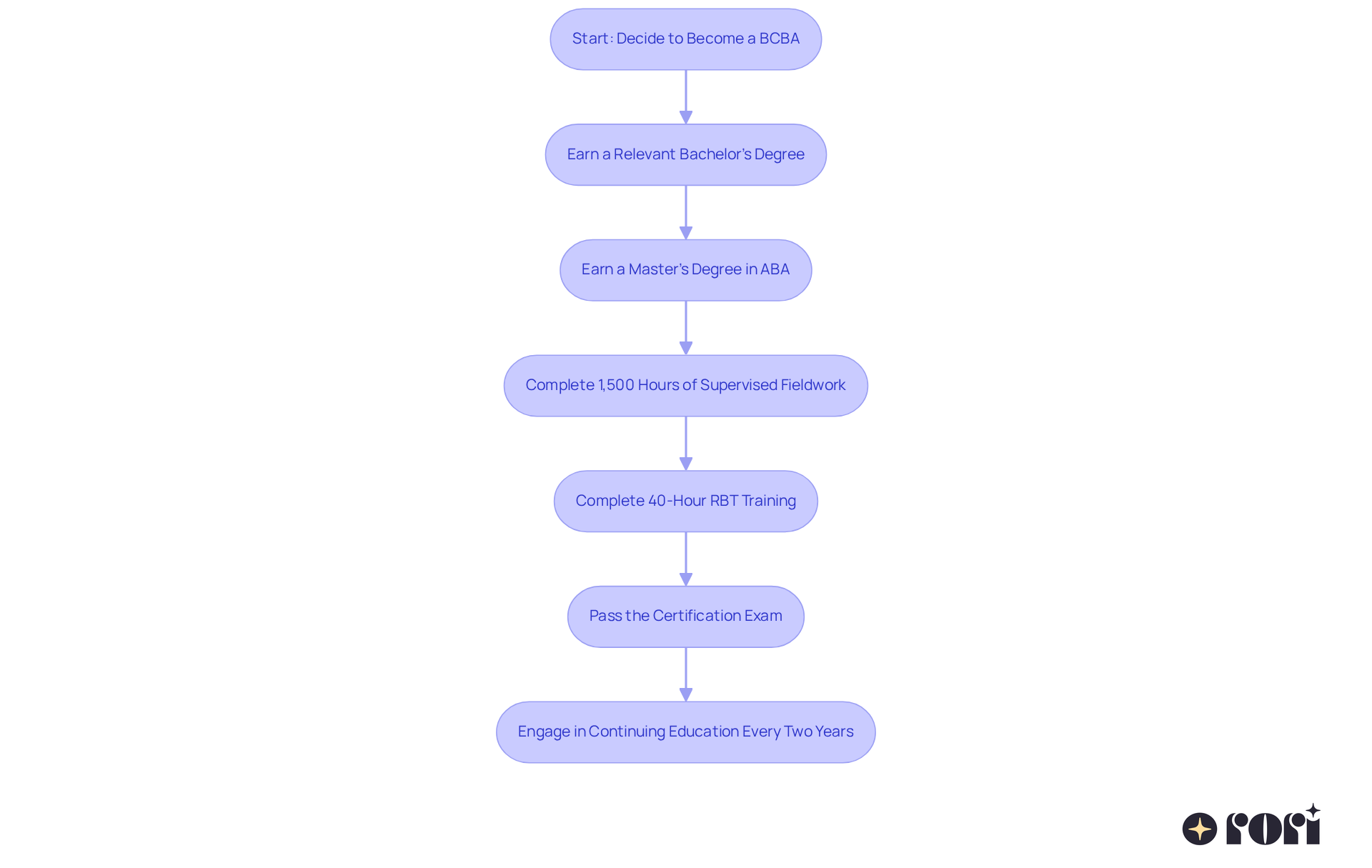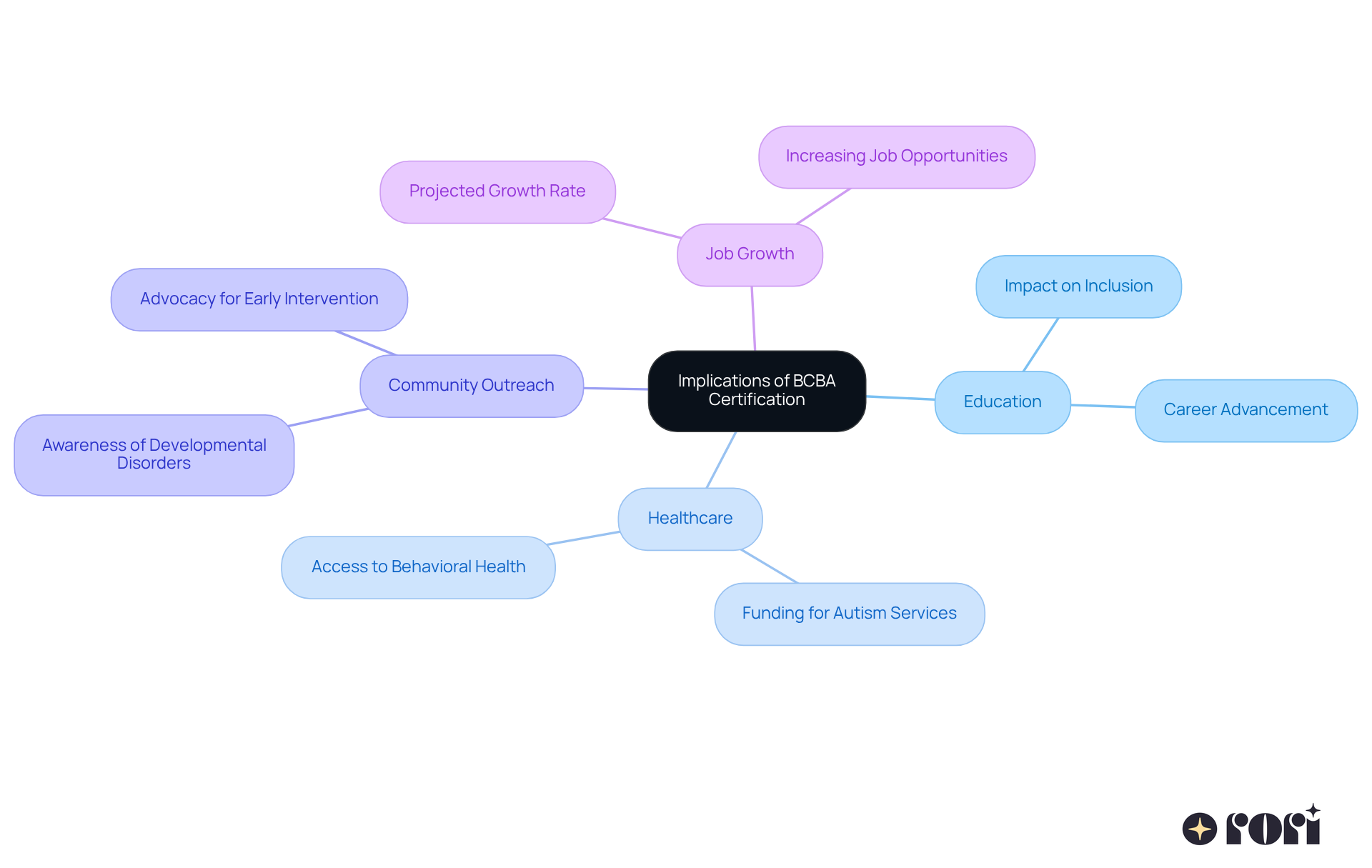This article dives into the heartfelt motivations behind becoming a Board Certified Behavior Analyst (BCBA) and shines a light on the incredible impact BCBAs have on child development, especially for children with autism. Many individuals are inspired by personal experiences and a genuine desire to use evidence-based practices to make a positive difference in children's lives. Plus, there's a growing demand for BCBAs, opening up exciting professional opportunities in this rewarding field.
Let’s explore this together! Whether you’re a parent curious about the role of BCBAs or someone considering this career path, understanding the challenges faced by families can deepen your appreciation for this vital work. BCBAs are not just professionals; they’re advocates who help children thrive. With their expertise, they can transform lives, and that’s something truly special.
As we navigate this topic, think about how these experiences resonate with you. Have you ever felt the need for support in your child's development? You're not alone, and seeking help is a courageous step. We’re here to help you every step of the way!
In conclusion, the journey to becoming a BCBA is fueled by passion and a commitment to making a difference. If you’re inspired by this, consider exploring the resources available to you or reaching out for support. Together, we can create a brighter future for our children.
The role of a Board Certified Behavior Analyst (BCBA) is becoming increasingly recognized as crucial in shaping the futures of children with developmental disorders. Many individuals are drawn to this profession out of a deep desire to make a difference, often inspired by personal experiences or a passion for helping youth overcome challenges. As the need for qualified BCBAs continues to grow, it raises an important question: what motivates someone to embark on this rewarding yet demanding journey?
Let’s explore the transformative impact BCBAs have on child development and the broader societal implications of their work. This reveals not only the personal fulfillment this career can bring but also highlights the vital role these professionals play in fostering inclusive environments for all children. Together, we can appreciate the significance of BCBAs and the positive changes they inspire in the lives of so many families.
Many individuals are drawn to the role of a Board Certified Behavior Analyst (BCBA) because they understand why becoming a BCBA is important in supporting youth with developmental disorders. Often, this passion stems from personal experiences—perhaps a family member with autism or witnessing the challenges faced by affected children and their families. The opportunity to apply evidence-based practices that promote positive behavioral changes is incredibly motivating. Just imagine witnessing real improvements in a child's behavior and overall quality of life; it’s truly rewarding.
Moreover, the professional growth and advancement opportunities available to BCBAs, including the chance to mentor and guide others in the field, inspire many to pursue this certification. With the demand for BCBAs expected to rise, especially in states like Oregon and California, many are considering why to become a BCBA, as this career path offers personal fulfillment along with a secure and promising future.
At Rori Care, we take pride in our unique approaches that blend AI-driven technologies with established ABA strategies. This empowers caregivers with the tools and insights they need to effectively support youth in achieving their behavioral goals. Our commitment to innovation not only enhances the quality of care we provide but also addresses the challenges therapy companies face in retaining clinicians, ensuring families receive the essential services they need. Let’s explore this together and see how we can make a difference in the lives of these children!

BCBAs play a vital role in supporting youth development, especially for those on the autism spectrum. By conducting personalized evaluations and crafting tailored intervention strategies, they empower young people to build essential skills like communication, social interaction, and self-regulation. For example, a BCBA might use specific techniques to help a young person start conversations or respond appropriately in social situations.
These targeted interventions not only enhance immediate behavioral outcomes but also open doors for long-term success in both academic and social settings. Research shows that early intervention by BCBAs can lead to remarkable improvements in a young person's ability to connect with peers, manage emotions, and face daily challenges, ultimately fostering greater independence and a better quality of life.
Success stories are everywhere! Many children have shown significant progress in their communication skills and social interactions after receiving BCBA-guided therapy. This truly highlights the incredible impact these professionals have on the lives of children and their families. Let’s explore this together and see how we can support your journey!
Understanding why become a BCBA involves a journey that requires dedication and commitment. First things first, candidates need to earn a relevant bachelor's degree, followed by a master's degree in applied behavior analysis or a related field. After completing the necessary coursework, aspiring BCBAs are expected to gather around 1,500 hours of supervised fieldwork. This hands-on experience is so important! It allows candidates to apply what they’ve learned in real-world situations.
To boost their skills even further, candidates might consider enrolling in a comprehensive 40-hour online RBT® training program. This program offers practical lessons that are essential for developing the skills needed for certification. Once all these steps are completed, candidates must pass the certification exam, which tests their knowledge and competency in behavior analysis principles. Did you know that the typical pass rate for first-time exam candidates is about 65%? This highlights how challenging the exam can be and the importance of thorough preparation.
To keep their certification, Board Certified Behavior Analysts must engage in ongoing professional development, including completing continuing education units (CEUs) every two years. Many candidates prepare for the BCBA exam over three to six months, so creating a structured study plan is key! Regular review sessions and practice exams can make a big difference. Joining study groups or utilizing academic support services can also enhance preparation efforts, offering valuable resources and collaborative learning opportunities.
It’s also important to tackle common challenges like test anxiety and time management. If candidates don’t pass the exam on their first try, they must wait 45 days before re-registering. This emphasizes the need for effective study strategies and mentorship along the way. This organized route not only highlights why become a BCBA by equipping behavior analysts with the essential skills to provide high-quality services but also ensures they stay updated in their practice, ultimately benefiting the young individuals and families they support.
Plus, understanding insurance-covered payment options can empower families to access up to 100% coverage of ABA therapy. This knowledge is crucial for caregivers as they navigate ways to support their children’s behavioral goals effectively. Let’s explore this together! We’re here to help you every step of the way!

The certification of Board Certified Behavior Analysts (BCBAs) has a significant impact on our society. As more families seek qualified behavior analysts, BCBAs are becoming recognized as vital players in education and healthcare. Their specialized expertise not only enhances the lives of individuals on the spectrum but also helps create inclusive environments where all children can flourish.
BCBAs are key in community outreach and education, spreading awareness about developmental disorders and the importance of early intervention. This advocacy can lead to more funding and resources for autism services, ultimately benefiting families and communities. By choosing a path as a board-certified behavior analyst, individuals not only advance their careers but also understand why becoming a BCBA is crucial for building a more inclusive and supportive society for those facing developmental challenges.
Did you know that BCBA jobs are expected to grow by 22% over the next decade? This growth highlights the increasing recognition of their essential role in addressing behavioral health needs, further solidifying their impact in various settings. Let’s explore this together and see how these professionals are making a difference!

Becoming a Board Certified Behavior Analyst (BCBA) isn’t just a career choice; it’s a heartfelt commitment to transforming the lives of children with developmental disorders. This role opens a door to meaningful change, fueled by a passion for helping others and a desire to use evidence-based practices. The joy of witnessing a child’s progress is a powerful motivator for many who embark on this journey.
Throughout this article, we’ve explored key motivations for pursuing BCBA certification. Personal experiences often inspire individuals to enter the field, and there are fantastic professional growth opportunities available. BCBAs have a significant impact on child development by implementing tailored intervention strategies that empower children to enhance their communication, social skills, and overall independence.
The rigorous certification process ensures that BCBAs are well-prepared to deliver high-quality services and stay updated in their practice, ultimately benefiting the families they serve. But the importance of BCBAs goes beyond individual success stories. Their work fosters inclusive environments and raises awareness about developmental disorders, which can lead to increased funding and resources for autism services.
As the demand for qualified behavior analysts continues to grow, there’s a unique opportunity for individuals to contribute to a more supportive society. Embracing the journey to become a BCBA not only advances personal career goals but also plays a crucial role in creating a brighter future for children facing developmental challenges. Let’s explore this together and see how you can make a difference!
What motivates individuals to become a Board Certified Behavior Analyst (BCBA)?
Many individuals are motivated to become a BCBA due to personal experiences, such as having a family member with autism or witnessing the challenges faced by children with developmental disorders. The desire to apply evidence-based practices that promote positive behavioral changes and the rewarding nature of witnessing improvements in a child's behavior and quality of life also drive this motivation.
What are the professional opportunities available to BCBAs?
BCBAs have opportunities for professional growth and advancement, including mentoring and guiding others in the field. The demand for BCBAs is expected to rise, particularly in states like Oregon and California, which adds to the appeal of pursuing this certification.
How does Rori Care support BCBAs and the families they serve?
Rori Care combines AI-driven technologies with established Applied Behavior Analysis (ABA) strategies to empower caregivers. This approach provides the tools and insights needed to effectively support youth in achieving their behavioral goals while enhancing the quality of care offered.
What challenges do therapy companies face in retaining clinicians, and how does Rori Care address this?
Therapy companies often face challenges in retaining clinicians, which can impact the continuity of care for families. Rori Care's commitment to innovation helps address these challenges, ensuring that families receive the essential services they need.